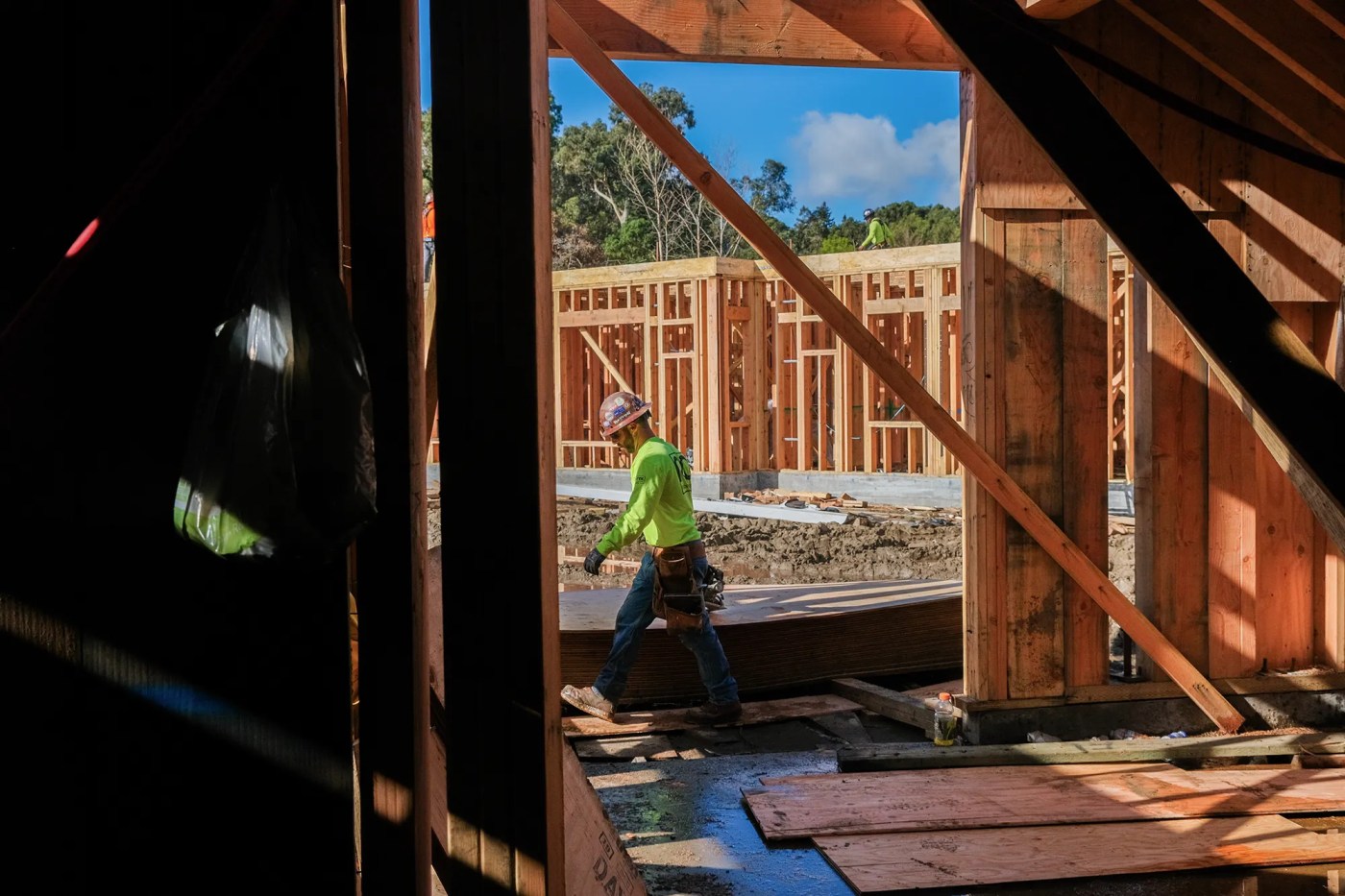
Submit your letter to the editor via this form. Read more Letters to the Editor.
Services, not homes,
will help unhoused
Re: “Newsom’s demand to increase housing” (Page A1, June 28).
In regard to the “desperately needed” additional housing, pushed by Gov. Newsom and Assemblymember Buffy Wicks, who is desperate except for the real estate and construction industries?
The effects of additional housing on our environment — more traffic, etc. — are ignored. In fact, this new push seeks to repeal environmental protections that have served us well for years. The homelessness crisis is used as an excuse for the push, but the proposed new housing will do nothing to alleviate this. The unhoused will not be buying new homes.
Homelessness is caused by rampant income inequality and the destruction of what was once a safety net for those needing mental health care and other forms of assistance, help that should be provided by a humane society.
Jim Hogan
El Sobrante
Berkeley’s upzoning
hurts people of color
Berkeley’s upzoning proposal is racist. Changes in zoning make the low-income neighborhoods where Berkeley’s people of color traditionally have homes targets for developers; they’ll buy up these dwellings, raze them and create for-profit, market-rate housing that people of color cannot afford.
Upzoning makes this easier. The “market” is going to maximize its own profits; it is not going to give us the planning, land use and housing policy we need and deserve.
Berkeley has lost African American populations because of the market-rate housing boom, so-called “gentrification.” We have fewer homes for low-income folks. Upzoning makes less existing or new housing available for people with low incomes. It is racist; low-income people are often people of color, and there are now fewer living in Berkeley.
Margot Smith
Berkeley
A plea for the enduring
values of America
Mia Love, a congressmember from Utah, recently died from a brain tumor. Before her passing, she sent a thank-you note to those she knew.
She noted her parents immigrated from Haiti with only $10 in their pocket and speaking no English, but believing in the American values of optimism, personal responsibility, and individual freedom and liberty. Through hard work and sacrifice, they achieved many successes.
America is exceptional, she thought, because it is built by citizens and leaders who respect, strengthen and serve each other, not based on race, gender or economic status, but by respecting each individual.
Her letter ended with the hope that her life had mattered, and that she had made a difference for those she had close contact with. She hoped her voice would be heard in the whisper of the winds of freedom and her presence felt in the enduring principles of personal liberty.
Mike Heller
Walnut Creek
Urge Congress to keep
fighting Trump’s tax bill
Re: “Senate Democrats force tax bill’s readout” (Page A1, June 30).
Donald Trump’s so-called “Big Beautiful Bill” continues and expands tax breaks for the ultra-wealthy and corporations, while it hurts people for whom basic health and nutrition services are being reduced or eliminated. This includes veterans, single parents, seniors, people with disabilities and children.
The House passed one version of the bill and the Senate passed theirs. Then it goes back to the House.
Call your Congress member this week (and tell friends in other districts to call their Congress members) to strongly oppose cutting health and nutrition services.
Ashley Coates
Moraga
Tax on unearned income
good for Social Security
Re: “Social insecurity is set for year 2033” (Page C7, June 30).
Jill Schlesinger’s column is a prescient warning, but it lacks one critical solution: taxing unearned income.
A 1% tax on unearned income above $1 million a year would solidify the Social Security trust fund and even allow for a reduction in the rate paid by employers, a rate that Ronald Reagan had doubled.
This could lower the employer’s staffing costs, leading to a lower unemployment rate and increased profitability.
That’s a big win-win that Schlesinger omitted.
Edward Chainey
Richmond
AADAPT Act would
improve dementia care
I’m writing to request support from our legislators to co-sponsor the AADAPT Act for dementia care.
Alzheimer’s was not considered a cause at my wife’s doctor visit for brain fog when she was in her early 50s. Her doctor at that time requested testing for other causes.
Nearly a year after seeking more competent doctors and a referral to neurology, testing revealed she suffers from Alzheimer’s.
Related Articles
Letters: Donald Trump’s ‘Big Beautiful Bill’ attacks our most vulnerable
Letters: Colleges’ runaway spending makes tuition unaffordable
Letters: Pentagon can’t strip Harvey Milk from our memories
Letters: Donald Trump’s war on trans education puts lives at risk
Letters: By electing Tordillos, S.J. District 3 rejects corporate influence
These delays in diagnosis resulted in a further decline in her health, making her ineligible for newer, more promising treatment.
Twenty-two percent of primary care physicians received no training in medical school for Alzheimer’s. Thirty-nine percent lack confidence in diagnosing this disease.
Specifically, this bill calls for required medical training for Alzheimer’s, resulting in earlier diagnosis by PCPs. It saves unnecessary costs in health care and results in earlier treatment before more advanced stages prohibit the use of highly effective treatments.
David Dufresne
Danville